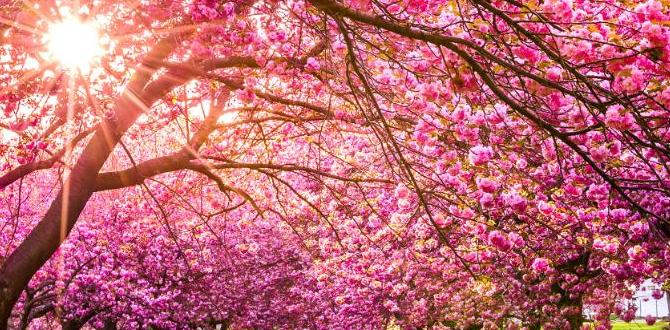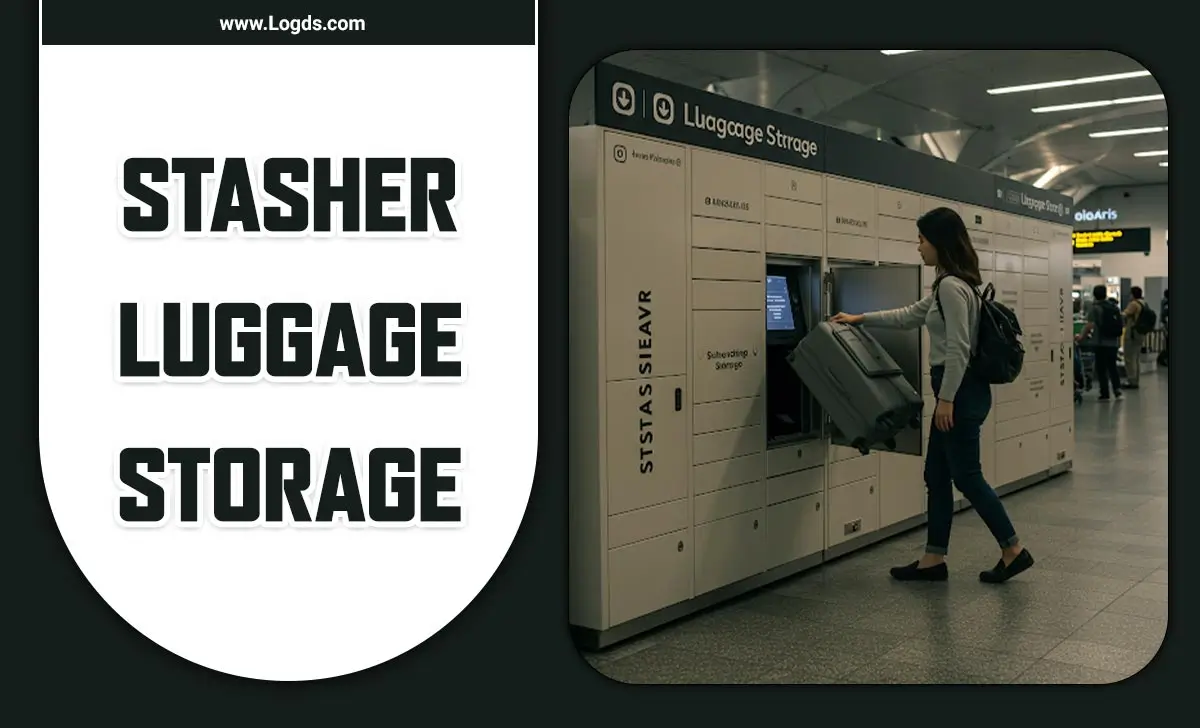Quick Summary:
Ubud, Bali, is celebrated for its welcoming atmosphere. While many areas embrace inclusivity, the heart of Ubud and its surrounding cultural hubs offer the most consistently LGBTQ+ friendly experiences, with numerous accommodations, restaurants, and spiritual centers embracing diversity.
Planning a trip to Bali, especially to the serene spiritual hub of Ubud, should be an experience filled with peace and joy. Sometimes, finding destinations that feel truly safe and accepting can add an extra layer of worry to travel, particularly for members of the LGBTQ+ community. You want to relax, explore, and immerse yourself in a new culture without feeling out of place or unsafe. The good news is that Bali, and Ubud in particular, has a reputation for being a warm and open destination. Navigating a new place can feel daunting, but this guide is here to simplify things, showing you exactly where to find the most welcoming spots in Ubud. Get ready to discover a side of Bali that embraces everyone.
Ubud: A Haven of Inclusivity in Bali
Ubud, often called Bali’s cultural heart, is renowned not just for its lush rice paddies and ancient temples, but also for its surprisingly progressive and open-minded vibe. For LGBTQ+ travelers, this translates into a destination where you can explore ancient traditions, vibrant arts scenes, and serene natural landscapes with a sense of comfort and acceptance. While Bali as a whole tends to be more relaxed and tolerant than some other Southeast Asian destinations, Ubud stands out as a sanctuary where diversity is often celebrated, not just tolerated.
The island’s spiritual roots, coupled with a thriving tourism industry that attracts people from all walks of life, have fostered an environment where many businesses and locals are accustomed to and welcoming of LGBTQ+ visitors. This guide will help you identify the most LGBTQ+ friendly areas within and around Ubud, ensuring your stay is as comfortable and enjoyable as possible. We’ll cover everything from accommodation options to the best neighborhoods to explore.
Understanding Bali’s Cultural Nuances
It’s important for any traveler to acknowledge and respect local customs. While Bali is generally accepting, it’s essential to be aware that Indonesia is a Muslim-majority country, and while Bali is predominantly Hindu, local laws and social norms can vary. Public displays of affection, regardless of orientation, are generally more subdued than in Western countries. However, in tourist-centric areas like Ubud, many establishments are geared towards international visitors, leading to a more relaxed atmosphere. Understanding these nuances can help ensure a smoother and more respectful travel experience.
What Makes an Area “LGBTQ+ Friendly”?
For travelers, “LGBTQ+ friendly” typically means an area where:
- Businesses (hotels, restaurants, tour operators) are openly welcoming and inclusive.
- There’s a visible or established LGBTQ+ community or social scene.
- Anti-discrimination policies or attitudes are prevalent.
- Safety and security are prioritized for all visitors.
- A general atmosphere of acceptance and non-judgment prevails.
The Heart of Ubud: Your Best Bet for Inclusivity
The central areas of Ubud are where you’ll find the highest concentration of businesses that are actively catering to and welcoming LGBTQ+ travelers. This isn’t to say other areas aren’t friendly, but the bustling core offers the most immediate and visible signs of inclusivity.
Ubud Town Center
This is the vibrant epicenter of Ubud, teeming with life, culture, and commerce. From the moment you arrive, you’ll notice a dynamic energy. Accommodation options here range from charming guesthouses to boutique hotels, many of which are highly rated for their welcoming staff and inclusive policies.
- Vibe: Lively, cultural, bustling with markets, shops, and cafes.
- Accommodation: Wide range from budget-friendly to luxury. Many independent hotels and villas pride themselves on excellent customer service for all guests.
- Dining & Nightlife: A plethora of restaurants, cafes, and smoothie bars. While Ubud doesn’t have a “gay scene” in the way large Western cities do, many venues are known for their friendly staff and diverse clientele. Look for live music venues and cafes that attract a mix of locals and international visitors.
- Activities: Close proximity to the Monkey Forest, Ubud Palace, Ubud Market, and numerous art galleries.
Many travelers choose to stay right in the town center precisely because of the accessibility and the built-in comfort of being surrounded by a diverse tourist population and businesses accustomed to catering to a global clientele. You can easily find reputable travel agencies here, cooking classes, and yoga studios that foster a sense of community.
The Campuhan Ridge Walk Area
Just on the western edge of the town center, the Campuhan Ridge Walk offers a more serene escape with stunning natural beauty. While this area is primarily residential and focused on nature, its proximity to the town center means you can easily access its amenities while enjoying a quieter stay.
- Vibe: Peaceful, scenic, close to nature.
- Accommodation: Many beautiful resorts and private villas with lush surroundings. These often attract couples and honeymooners from all backgrounds, implying a welcoming environment.
- Accessibility: A short walk or taxi ride to the main Ubud streets.
- Activities: The famous Campuhan Ridge Walk offers breathtaking views and a tranquil start or end to your day.
Staying near Campuhan provides that perfect balance of tranquility and access. You can start your day with a walk amidst nature and then easily venture into the town for cultural immersion or a meal.
Nyuh Kuning Village
Located south of the Monkey Forest, Nyuh Kuning is a charming village known for its artistic community and peaceful atmosphere. It offers a more local feel while still being very accessible to the main attractions of Ubud.
- Vibe: Artsy, tranquil, residential feel with a strong community spirit.
- Accommodation: Many homestays and smaller guesthouses, offering an authentic experience.
- Community: Known for local artists and a generally friendly, laid-back environment.
- Proximity: A pleasant walk or short drive to the Monkey Forest and the southern parts of Ubud’s main street.
This village provides a wonderful opportunity to experience Balinese village life in a welcoming setting. Many artists and craftspeople here are inspired by the island’s diverse influences, reflecting a broader acceptance.
Accommodations: Finding Welcoming Stays in Ubud
When booking your accommodation, look for places that explicitly mention inclusivity or have a high number of positive reviews from diverse travelers. Many boutique hotels and villas in Ubud go above and beyond to ensure all guests feel comfortable and respected.
Tips for Choosing Welcoming Hotels and Villas:
- Read Reviews: Pay close attention to reviews that mention the staff’s friendliness, helpfulness, and general attitude towards guests. Look for mentions of all types of travelers being welcomed.
- Check Hotel Policies: While explicit LGBTQ+ policies are rare, looking for general non-discrimination statements or family-friendly policies can be a good indicator.
- Direct Communication: If you have specific concerns, don’t hesitate to email the hotel directly. A prompt and reassuring response is often a good sign.
- Look for Boutique Options: Smaller, independently owned accommodations often have a more personal touch and are more likely to prioritize individual guest comfort and satisfaction.
Remember, places that excel in general hospitality usually extend that to all guests. For instance, ensuring you have what you need for comfort, like comfortable bedding and readily available toiletries, is a baseline that good hotels provide universally. For travelers who might require specific personal care items, such as adult diapers or child diapers for longer trips or during transit, discreet and understanding service from accommodation providers can make a significant difference in peace of mind.
Recommended Accommodation Types:
| Accommodation Type | Pros | Cons | LGBTQ+ Friendliness Indicator |
|---|---|---|---|
| Boutique Hotels in Central Ubud | Centrally located, diverse amenities, often modern and inclusive policies. | Can be pricier, potentially noisier due to location. | High. Businesses catering to international tourists often adopt inclusive practices. |
| Private Villas (e.g., near Campuhan) | Privacy, tranquility, often luxurious, ideal for couples or groups. | May require transport to central amenities, can be expensive. | High. Often cater to honeymooners and romantic getaways for all couples. |
| Homestays/Guesthouses (e.g., Nyuh Kuning) | Authentic experience, budget-friendly, intimate setting. | Fewer amenities, shared facilities sometimes, language barrier potential. | Moderate to High. Depends on the individual family, but generally warm and welcoming. |
| Yoga & Wellness Retreats | Focus on peace, mindfulness, community, often attract like-minded individuals. | Can be focused on specific programs, may be pricier. | Very High. These environments typically foster inclusivity and are very open. |
Dining and Entertainment: Where to Eat and Enjoy in Ubud
Ubud’s culinary scene is world-renowned, and thankfully, the welcoming spirit extends to its many eateries and cafes.
LGBTQ+-Friendly Dining Spots
While you won’t find explicit “gay bars” in Ubud as you might in major Western cities, the restaurant and cafe scene is incredibly diverse and welcomes everyone. Many establishments are popular with a broad spectrum of travelers and locals, making them de facto inclusive spaces.
- Warungs and Local Eateries: These offer authentic Indonesian and Balinese food and are generally very welcoming. The focus is on good food and local hospitality.
- Cafes and Juice Bars: Ubud is famous for its healthy cafes, smoothie bowls, and fresh juices. These are often hubs for digital nomads and travelers from all over and share a relaxed, inclusive vibe.
- Restaurants with Live Music: Venues that feature live music or cultural performances often attract a diverse crowd and foster a lively, accepting atmosphere.
Some popular areas for dining and socializing that tend to attract a broad, international crowd include streets around:
- Jalan Monkey Forest
- Jalan Hanoman
- Jalan Gootama
These streets are packed with options, from fine dining to casual eateries. You’ll find that the staff are accustomed to a wide range of guests and are generally very accommodating and friendly. For instance, if you’re traveling with children, many places are family-friendly, offering suitable options. Likewise, if you require specific dietary accommodations or simply a comfortable place to relax, you’ll find it here.
Cultural Experiences
Ubud is the heart of Balinese art and culture. Attending traditional dance performances, visiting art galleries, and participating in yoga or meditation retreats are excellent ways to connect with the spirit of Ubud. These cultural activities are open to everyone and are often conducted in an atmosphere of respect and appreciation.
A great resource for understanding local culture and customs is the Ubud Tourist Information Center. They can provide insights into etiquette and upcoming events that are welcoming to all.
Beyond the Town Center: Exploring Friendly Surroundings
While the town center is the most concentrated hub, friendly vibes radiate outwards into the surrounding villages and natural areas.
Tegalalang Rice Terraces
The iconic Tegalalang Rice Terraces are a must-visit. While primarily a natural attraction, the surrounding cafes and small businesses catering to tourists are generally very welcoming. The sheer beauty and the influx of international visitors mean that inclusivity is the norm.
- Activities: Exploring the terraces, learning about the subak irrigation system, enjoying scenic views from cafes.
- Logistics: Easily accessible by taxi or scooter from central Ubud. Many of the viewpoints and cafes offer stunning panoramas and are friendly to all patrons.
Sari Api Ceramic Studio and other Art Villages
Ubud isn’t just about serene landscapes; it’s also an art mecca. Villages surrounding Ubud, like those known for wood carving or ceramics, often house studios that welcome visitors. These artistic communities are typically open-minded and appreciate the interaction with people from diverse backgrounds.
For example, places like Sari Api Ceramic Studio offer workshops and a chance to connect with local artisans. The art world, by its nature, often attracts individuals who are more open to different perspectives and lifestyles. You can find more information on local art communities through resources like Wonderful Indonesia.
Practical Tips for LGBTQ+ Travelers in Ubud
While Ubud is generally very welcoming, a few practical tips can enhance your experience and ensure you feel comfortable and safe throughout your trip.
Respecting Local Customs
- Public Displays of Affection: As mentioned, be mindful of public displays of affection, which are generally more conservative in Bali compared to Western countries, regardless of orientation.
- Dress Modestly: When visiting temples or rural villages, dress respectfully. This usually means covering your shoulders and knees. In tourist areas and resorts, casual wear is fine.
- Learn Basic Phrases: A few simple phrases in Bahasa Indonesia can go a long way in showing respect and can be met with warm smiles. “Terima kasih” (Thank you) is especially useful.
Safety and Well-being
Ubud is considered one of the safest areas in Bali. However, standard travel precautions always apply.
- Stay Aware: Be aware of your surroundings, especially in crowded markets or at night.
- Secure Belongings: Keep your valuables safe and consider using a secure bag.
- Travel Insurance: Always ensure you have comprehensive travel insurance. This is crucial for any trip and covers unforeseen medical or personal needs. Some travelers, depending on their health needs, might specifically consider policies that offer good coverage for personal medical supplies or any unforeseen health circumstances. For instance, if you or a family member require discreet personal care items like adult or child diapers, knowing your insurance covers potential needs can offer significant peace of mind.
- Emergency Contacts: Keep a list of important contact numbers, including your embassy, local police, and your accommodation.
For any personal care needs, such as stress-free travel with adult or child diapers, remember that major tourist areas often have pharmacies or supermarkets that stock a range of products. However, for specific brands or larger quantities, it’s always wise to pack your own to ensure you have exactly what you need.
FAQs: Your Ubud LGBTQ+ Travel Questions Answered
Is Ubud, Bali, generally safe for LGBTQ+ travelers?
Yes, Ubud is widely considered one of the safest and most welcoming destinations in Bali for LGBTQ+ travelers due to its open-minded culture and thriving tourism industry that attracts a diverse international crowd.
Are there specific LGBTQ+ clubs or bars in Ubud?
Ubud does not have a dedicated “gay scene” with specific clubs or bars like some major Western cities. However, many cafes, restaurants, and live music venues are welcoming to everyone and attract a diverse clientele.
What should I wear in Ubud?
In central Ubud and tourist areas, casual wear is appropriate and accepted. When visiting temples or more traditional villages, it’s respectful to dress more modestly, covering your shoulders and knees.
Is it safe to travel solo as an LGBTQ+ person in Ubud?
Solo travel is common in Ubud, and it’s generally considered safe for LGBTQ+ individuals. As with any travel, it’s always advisable to stay aware of your surroundings and take standard safety precautions.
Can I expect LGBTQ+-friendly accommodations in Ubud?
Yes, many hotels, villas, and guesthouses in Ubud, especially boutique options and those catering to international tourists, are very welcoming to LGBTQ+ guests. Reading reviews and communicating directly with accommodations can help confirm their inclusivity.
How should I handle public displays of affection in Ubud?
Public displays of affection are generally more conservative in Bali for all couples. It’s advisable to be more reserved in public spaces to show respect for local customs.
Where can I find essential personal care items if needed?
Major supermarkets and pharmacies in Ubud often stock a range of personal care items. However, for specific brands or larger quantities of items like adult or child diapers, it is recommended to pack enough for your trip.
Conclusion
Ubud, Bali, stands out as a truly special destination, offering not only breathtaking natural beauty and rich cultural experiences but also a genuinely warm and inclusive atmosphere for LGBTQ+ travelers. By understanding the nuances of the area, choosing accommodations that prioritize warmth and welcome, and embracing the vibrant social scene, you can ensure your trip to Ubud is both comfortable and unforgettable. Whether you’re exploring the bustling town center, finding peace near the Campuhan Ridge Walk, or immersing yourself in the artistic spirit of Nyuh Kuning, you’re likely to find open arms and friendly smiles.
Remember that respecting local customs and practicing general travel safety will always enhance your journey. Ubud’s charm lies in its ability to blend tradition with a forward-thinking, welcoming spirit. Your essential guide has laid the groundwork, so go forth, explore with confidence, and create memories that will last a






